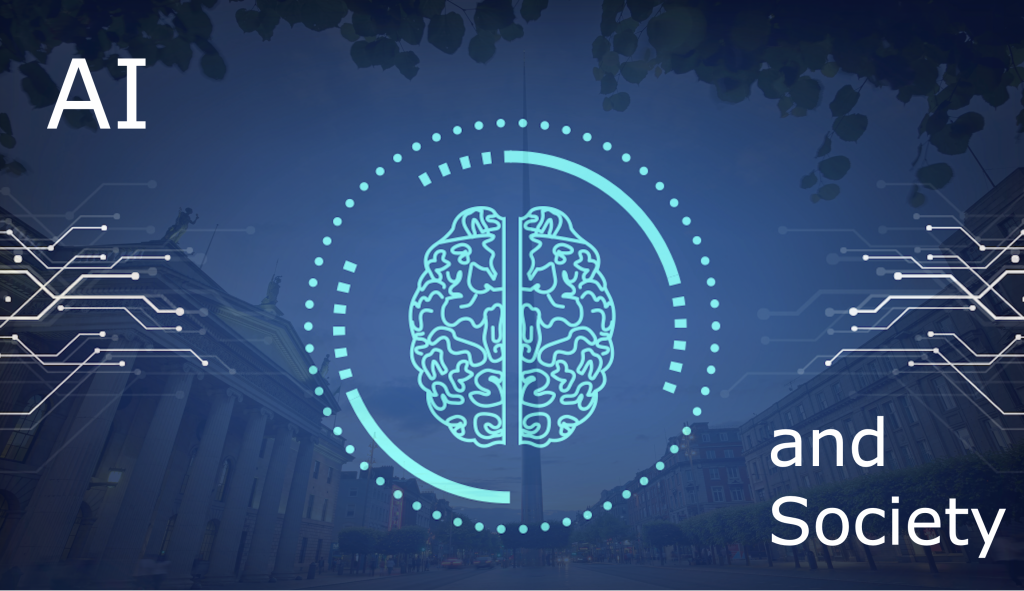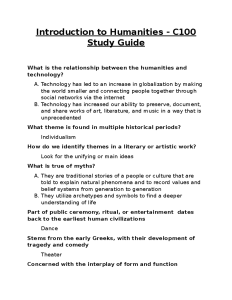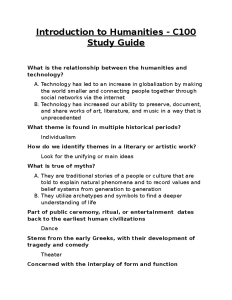AI and social justice are increasingly intertwined as we navigate the complexities of modern technology and its impact on society. Scholars like Ruha Benjamin highlight the urgent need to address how artificial intelligence, often portrayed as a tool for progress, can inadvertently perpetuate inequality and oppression. With the future of technology rapidly unfolding, we must critically examine the ethical AI frameworks that guide these innovations. Benjamin challenges the status quo, urging society to envision alternatives to a dystopian future, where marginalized voices are included in decision-making processes. By integrating insights from the arts and humanities into our understanding of technology, we can foster a more just and equitable world.
The intersection of artificial intelligence and equity is a vital topic in contemporary discussions surrounding technology’s role in shaping societal structures. Influential thinkers like Ruha Benjamin stress the importance of re-evaluating how these intelligent systems affect various communities, particularly those historically marginalized. As we consider the evolution of tech, it’s crucial to question frameworks of ethical intelligence that prioritize profit over people. Benjamin cautions against accepting dystopian narratives and instead invites us to envision a landscape where creativity and inclusivity drive innovation. Emphasizing the arts and humanities in this discourse can enrich our understanding and promote a holistic approach to developing technology that serves all, rather than a select few.
The Intersection of AI and Social Justice
Ruha Benjamin’s discourse on AI and social justice reveals the pivotal role technology plays in shaping our societies. As AI technologies permeate various sectors—healthcare, law enforcement, and employment—it’s crucial to interrogate whom these innovations serve and who gets left behind. Benjamin argues that AI, often marketed as a panacea for society’s ills, can perpetuate existing injustices if not guided by ethical considerations and an inclusive approach. Advocating for social justice means ensuring that technological advancements do not exacerbate inequalities but rather empower marginalized communities.
Moreover, embracing a framework of social justice in AI development calls for the integration of diverse perspectives within technological decision-making processes. Social scientists, ethicists, and artists should have a seat at the table alongside technologists to foster an environment that values human experiences over mere data points. This collaborative effort can lead to more equitable outcomes and challenge the dominant narratives that regard technological progress as inherently beneficial. By focusing on the intersection of AI and social justice, we can explore ways to harness these technologies to build more inclusive futures.
Ruha Benjamin on Rethinking the Future of Technology
In her Tanner Lectures, Ruha Benjamin advocates for a reimagined future where technology does not solely revolve around the visions of wealthy elites. She challenges the prevailing narratives that frame the future as a series of dystopian scenarios, emphasizing that our collective imagination can shape a more hopeful outlook. By leveraging the insights of the arts and humanities, Benjamin asserts that we can create alternatives to the current tech-dominated trajectory. This involves embracing creativity and interdisciplinary collaboration to rethink technological development and its implications for society.
Furthermore, Benjamin urges us to critique the norm of idolizing technological solutions without addressing deeper societal issues. By recognizing that many innovative proposals, like superintelligence and Mars colonies, often overshadow practical public initiatives such as affordable housing and accessible public transportation, we can identify where our priorities lie. The future of technology should be guided by ethical considerations and humanity’s well-being rather than driven by the interests of a few. This shift in perspective can lead to transformative solutions that address critical social needs and foster resilience against systemic injustices.
Ethical AI: A Call for Responsibility
The concept of ethical AI has become increasingly vital in discussions surrounding technology’s role in society. Ruha Benjamin’s insights highlight the potential pitfalls associated with AI development that lacks a moral compass. She argues that while algorithms may seem neutral, their implementation often reflects biases embedded within societal structures. To ensure that AI serves the common good, there must be a concerted effort to scrutinize the ethical frameworks guiding its creation. This responsibility falls upon developers, policymakers, and stakeholders who must work to align technological innovations with core ethical values.
Creating ethical AI requires transparency, accountability, and a commitment to inclusivity. By incorporating voices from diverse backgrounds, particularly those directly affected by AI systems, the technology can be designed to uplift rather than oppress. Benjamin’s call for interdisciplinary collaboration is essential; blending technical expertise with insights from social sciences can lead to nuanced understandings of how AI impacts different communities. In a world increasingly reliant on automated systems, promoting ethical AI is not just a matter of innovation but a moral imperative for a just society.
Dismantling Dystopian Futures: Alternatives to Technology-Driven Narratives
Ruha Benjamin’s analysis suggests that the dominant narratives surrounding AI often lead us to anticipate a dystopian future, filled with surveillance, manipulation, and deepening societal divides. However, she challenges us to envision a world that is not constrained by these narratives. By exploring alternatives—pursuing public goods and creative thinking—we can reframe how technology intersects with our daily lives. Benjamin’s vision encourages us to consider how a collaborative, inclusive approach can dismantle fear-based responses to AI and instead cultivate a future characterized by equity and community enrichment.
Moreover, by rejecting the expectation of a dystopian future, we can unlock the potential of imagination in shaping a more humane society. Benjamin urges individuals and institutions to embrace this call to action, advocating for creative solutions that address systemic issues. This might mean prioritizing projects that promote social cohesion, public engagement, and positive community outcomes, highlighting the importance of shared values over profit-driven motives. Through active participation and innovative thinking, we can develop pathways toward a future where technology serves to enhance human dignity and collective well-being.
Reimagining Knowledge: Arts and Humanities in Tech Development
The intersection of arts, humanities, and technology is often overlooked in the rush to innovate. Ruha Benjamin posits that a renewed emphasis on these disciplines is crucial for comprehensively understanding the societal implications of technological advancements. As she suggests, technological projects should not only draw from mathematical and scientific expertise but must also incorporate insights from history, ethics, and cultural studies. By doing so, we can cultivate a more holistic approach that considers the human experience at its core, leading to innovations that resonate with diverse communities.
Incorporating the arts and humanities into technology development can foster a culture of creativity and critical thought, challenging the status quo. Benjamin advocates for educational institutions to prioritize interdisciplinary inquiry, allowing students and professionals alike to explore the rich tapestries of human experience that inform their work. This blend of disciplines can inspire socially conscious technological solutions that reflect ethical considerations and diverse perspectives, creating a future that emphasizes the importance of human values in technological progress.
Collective Vision: Envisioning a Just Future
In her lectures, Ruha Benjamin invites us to envision a collective future that transcends the limitations shaped by tech elites. She implores audiences to think beyond mere adjustments to existing systems and to fundamentally question the structures that underpin them. This visionary approach encourages a reimagining of what is possible, inspiring individuals from all walks of life to contribute to a shared destiny. By harnessing collective imagination and creativity, we can explore transformative ideals that advocate for justice and equity, challenging the dystopian narratives that frequently dominate our discussions about the future.
This call for a collective vision signifies the importance of inclusivity in shaping our technological landscape. By engaging a broad cross-section of voices, we can create solutions that reflect the complexities of human experiences. Furthermore, such an approach can empower communities historically marginalized by mainstream technological advancements, fostering engagement and reducing barriers to participation. As Ruha Benjamin advocates for this vision of a just future, we must all embrace the responsibility to contribute to narratives that celebrate innovation and creativity working in harmony with human values.
Challenging the Narrative: Social Justice in Technological Discourses
Ruha Benjamin emphasizes the critical need to challenge existing narratives around technology and its impact on society. She argues that current discussions often overlook key issues related to social justice, allowing powerful narratives framed by tech elites to dominate the conversation. This results in a skewed perception of who benefits from technological advancements and who suffers the consequences. To reshape these dialogues, Benjamin proposes a critical examination of the narratives we accept and promote, advocating for a more equitable representation of diverse voices and perspectives.
By challenging prevailing narratives, Benjamin calls on individuals and communities to take an active role in shaping technology’s trajectory. This involves advocating for policies that prioritize access to technology and ensuring equitable outcomes for all societal segments. Engaging with social justice frameworks enables us to hold tech companies accountable, demanding transparency and ethical practices in their operations. Ultimately, fostering these conversations can lead to a more balanced understanding of technology’s role in society, steering us towards inclusive and socially responsible futures.
Imagining Beyond Borders: A Global Perspective on Futures
The future envisioned by Ruha Benjamin extends beyond geographical and ideological boundaries. She asserts that we must imagine worlds free from the constraints of borders, surveillance, and dominance, where freedom and equity flourish. This global perspective emphasizes the importance of solidarity and shared humanity in addressing the challenges posed by technology. Benjamin encourages us to transcend nationalism in our visions of technology’s role in society, focusing instead on collective aspirations and universal rights.
Imagining futures without borders calls for collaboration across cultures and disciplines. Benjamin highlights the necessity of drawing inspiration from diverse cultural contexts to envision alternatives that challenge current power dynamics. By fostering cross-cultural exchanges and embracing diverse narratives, we can redefine the scope of what is possible. This vision champions a world enriched by collaboration rather than competition, ultimately leading to socio-technological innovations that prioritize humanity’s shared values and well-being.
The Role of Creativity in Technological Advancement
Ruha Benjamin’s discussions around creativity underscore the essential role it plays in rethinking technological advancements. She emphasizes that creativity should not only be an abstract concept but an actionable framework guiding the development and implementation of new technologies. By nurturing a culture of creativity, we can explore innovative approaches to problem-solving that take into account the multifaceted nature of human life. This creative impulse can inspire breakthroughs that prioritize ethical considerations and societal benefits over mere efficiency.
Encouraging creativity within technological fields also involves dismantling the rigid structures that often stifle innovative thinking. Benjamin advocates for environments that embrace experimentation and interdisciplinary collaboration, allowing new ideas and perspectives to flourish. By fostering spaces where creative exploration is the norm, we can develop technologies that not only address current challenges but also anticipate future societal needs. Ultimately, cultivating creativity in technology opens the door for more humane and just solutions that resonate with diverse populations.
Frequently Asked Questions
How does AI impact social justice according to Ruha Benjamin?
Ruha Benjamin argues that AI technology often exacerbates existing inequalities rather than alleviating them, citing examples like biased facial recognition and healthcare automation that disadvantage marginalized communities. She emphasizes the need for an ethical AI framework that prioritizes social justice.
What are Ruha Benjamin’s views on the future of AI and social justice?
Benjamin believes the future of AI should not be dystopian and calls for imaginative alternatives that focus on public goods and community equity. She asserts that a creative approach, involving knowledge from the arts and humanities, is essential in shaping a just technological landscape.
In what ways does Ruha Benjamin suggest we can reimagine AI for social good?
Benjamin advocates for integrating diverse perspectives at the AI decision-making table and prioritizing solutions that aim for systemic change, such as affordable housing and equitable access to resources rather than merely improving existing harmful systems.
What role do the arts and humanities play in creating ethical AI solutions, according to Ruha Benjamin?
Ruha Benjamin argues that the arts and humanities foster creativity and critical thinking essential for understanding the societal impacts of technology. By prioritizing these fields, we can develop ethical AI that genuinely addresses social justice concerns.
How can we ensure AI technologies promote social justice instead of contributing to oppression?
To ensure AI technologies support social justice, it is crucial to involve marginalized voices in their development, implement rigorous ethical standards, and prioritize societal needs over profit-driven motives. Ruha Benjamin emphasizes the importance of collaborative efforts that include community insights and values.
| Key Points |
|---|
| Ruha Benjamin argues against dystopian futures shaped by wealthy tech elites. |
| AI-driven futures often mask self-interest under the guise of altruism. |
| Technological solutions can perpetuate oppression, particularly against marginalized groups. |
| AI is wrongly perceived as a morally neutral technology based on mathematical decision-making. |
| Focus should be on diversifying knowledge at the decision-making table — beyond just technical expertise. |
| Encouragement for creativity and imagination, particularly via arts and humanities education. |
| Call to envision systems without borders, policing, and oppression. |
Summary
AI and social justice are pivotal themes in the contemporary discourse on technology’s impact on society. Ruha Benjamin’s insights highlight that a future defined by AI should not succumb to dystopian paradigms dictated by a few tech billionaires. Instead, it calls for a more equitable approach, ensuring that marginalized voices are included in technological advancements. By prioritizing creativity and the enrichment of human values, we can aspire to a future that transcends mere optimization and embraces a holistic vision of social equity.




